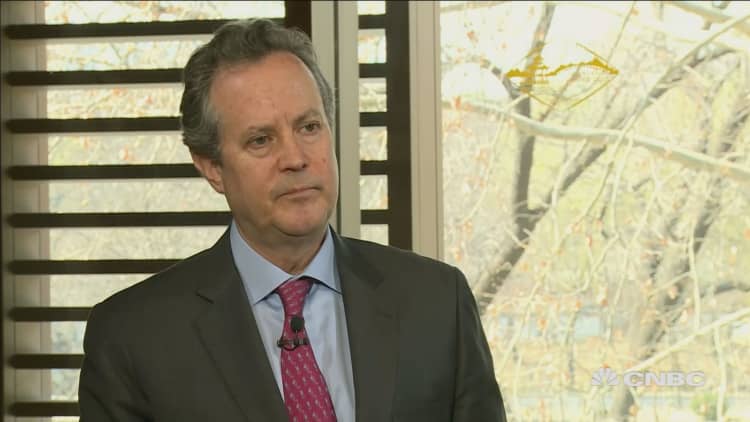
"Blunt force instruments" like tariffs won't go as far with China as talks will, said Douglas Peterson of financial services firm S&P Global, as the U.S. moves ahead with levies on Chinese imports.
"Clearly there are aspects to access to the Chinese market that people have been frustrated with," Peterson acknowledged in a Sunday interview with CNBC. "On the other hand, I don't know if this is really the right approach to have ... the United States coming in unilaterally to put in place tariffs and sanctions on trade."
A "bilateral, multilateral approach" is needed, he said, where "you have a really professional dialogue with the Chinese as opposed to just coming in with this blunt force instrument all at once right up front."
Bring in Europe and Japan
If ever such talks take place, Europe and potentially Japan could get involved, said Peterson, who spoke from the China Development Forum in Beijing.
Beijing on Friday said it may target 128 U.S. products with an import value of $3 billion as retaliation for President Donald Trump signing an executive order earlier this month that imposed broad duties on foreign aluminum and steel imports.
Trump announced plans for tariffs of up to $60 billion in Chinese imports last week, but China did not officially connect its Friday threats to that White House action.
In an editorial on Saturday, Chinese state-controlled newspaper Global Times took an unyielding stance.
"China doesn't support a trade war, but it is determined and prepared not to be the defeated side. To have a trade war or talks, that's the US' call," said the newspaper, which is owned by the ruling Communist Party's official People's Daily.
A broader capital market in China
Peterson said he expects that in the next few years, more funds in China will be flowing to pension funds. Capital markets, debt and bond markets will develop further, he said.
These developments, he said, "gives you more ways to finance companies, to understand what will be the evolution of different kinds of investing products. You see more venture capital, you see more long-term investing."
That is where S&P Global believes China should be going, he said. It's a view that was echoed by regulators and speakers at the China Development Forum.
Currently, financing in China continues to be dominated by banks. At the same time, so-called shadow banking and other kinds of debt that are "not necessarily on banks' balance sheets" continue in China, Peterson said.




